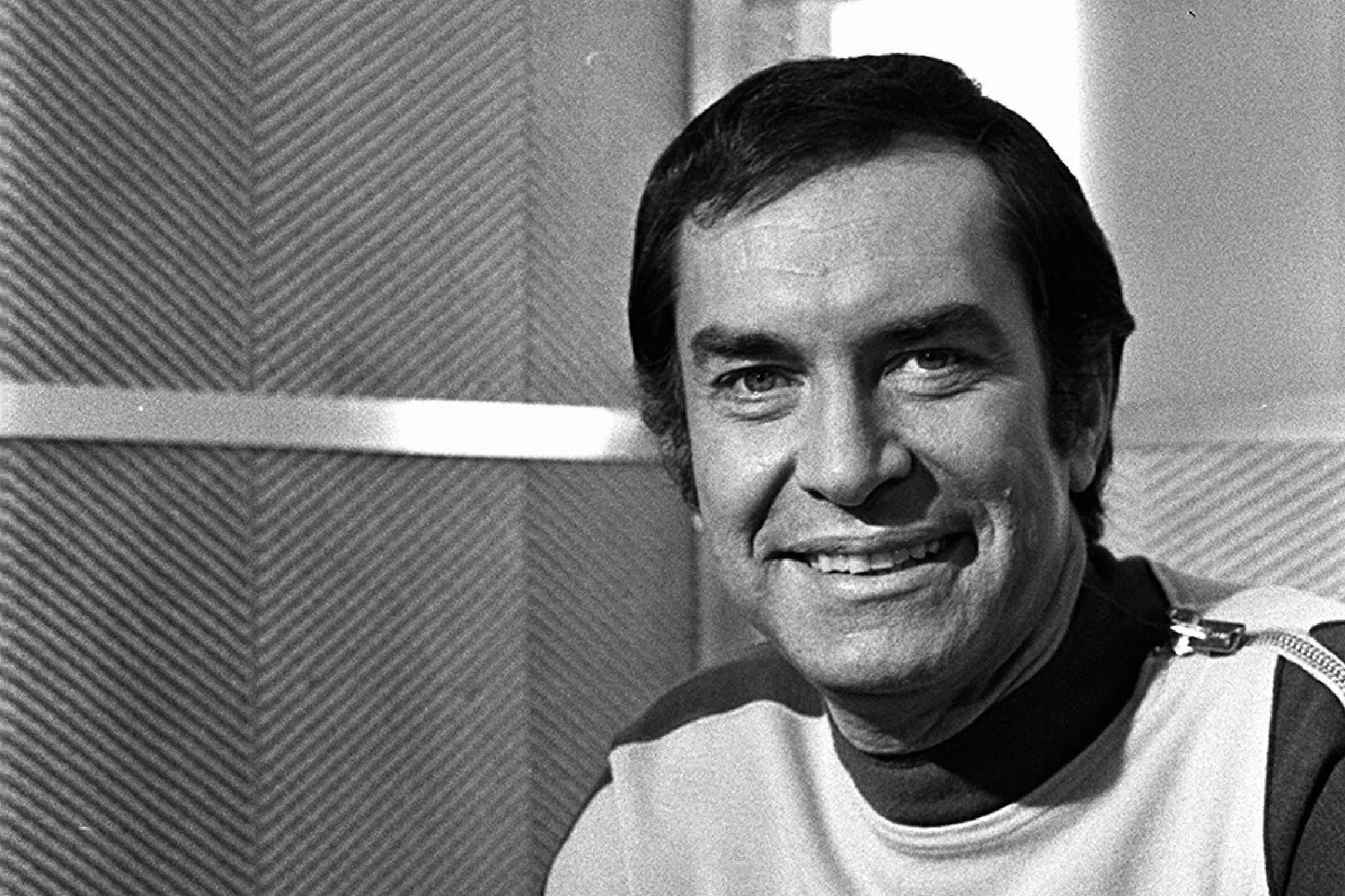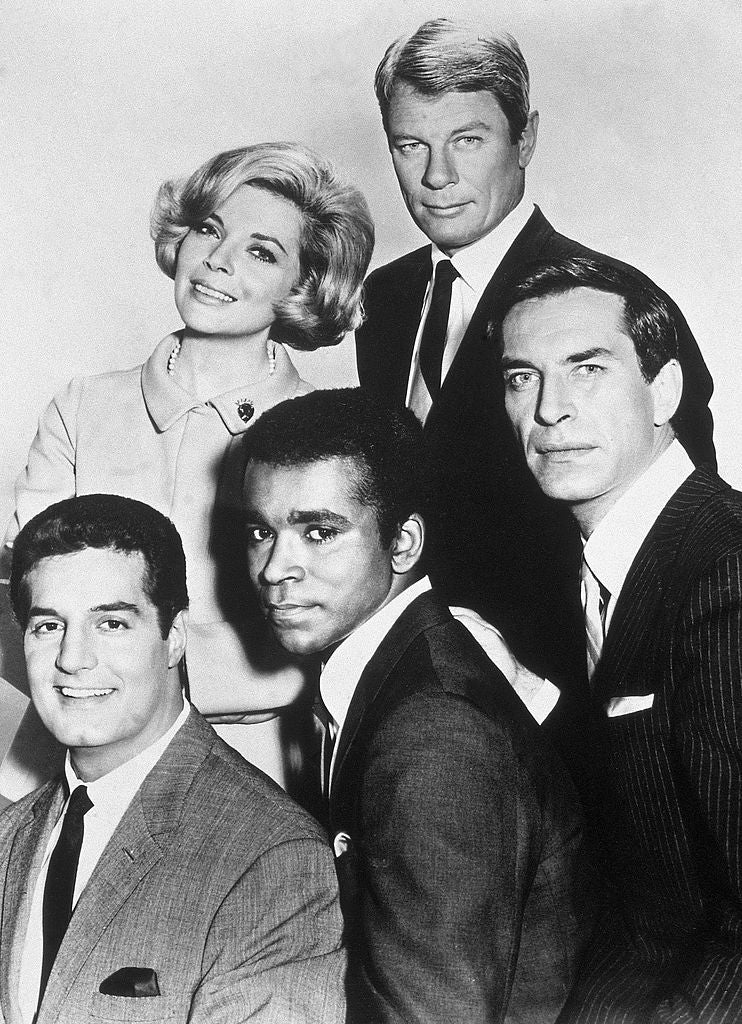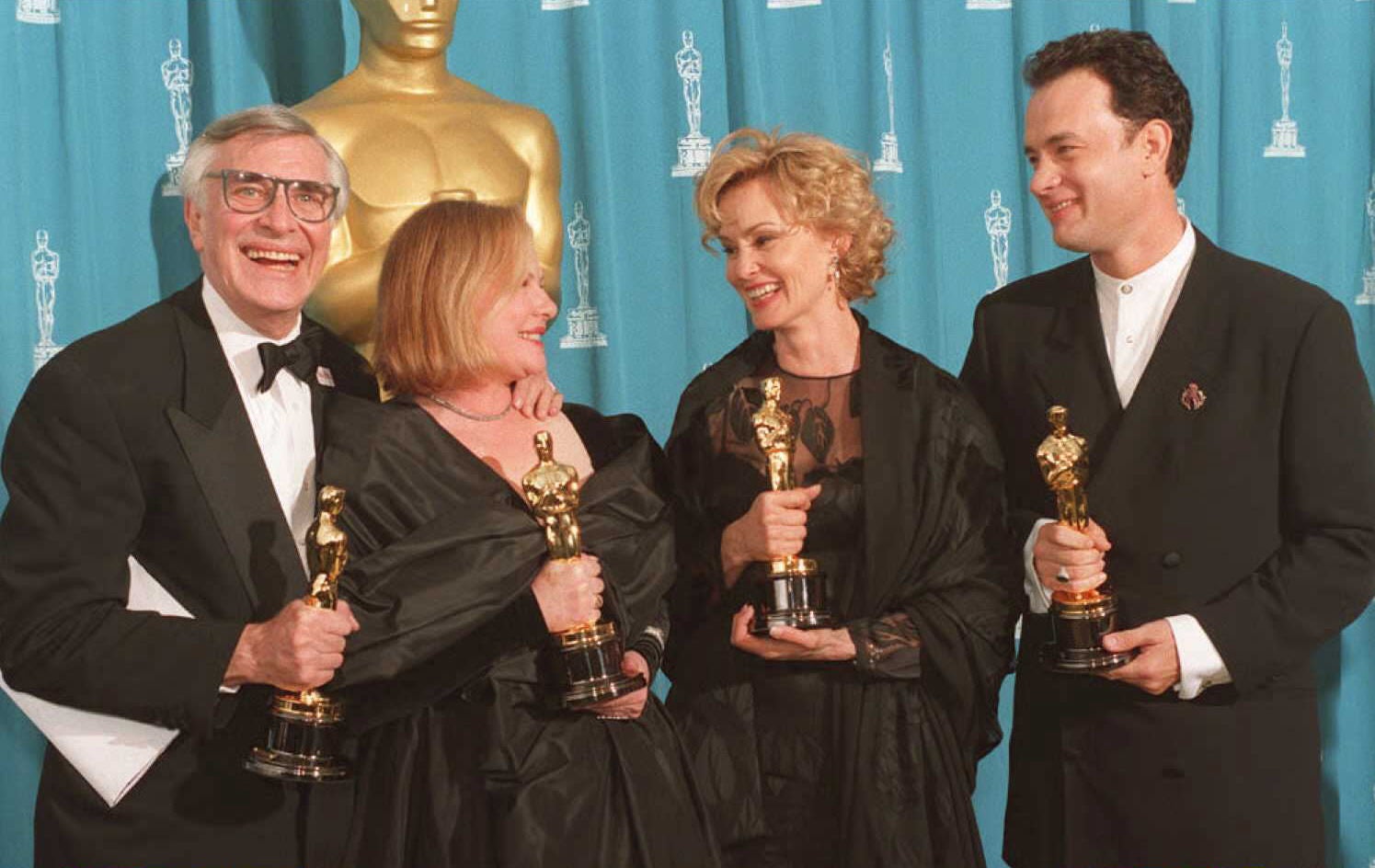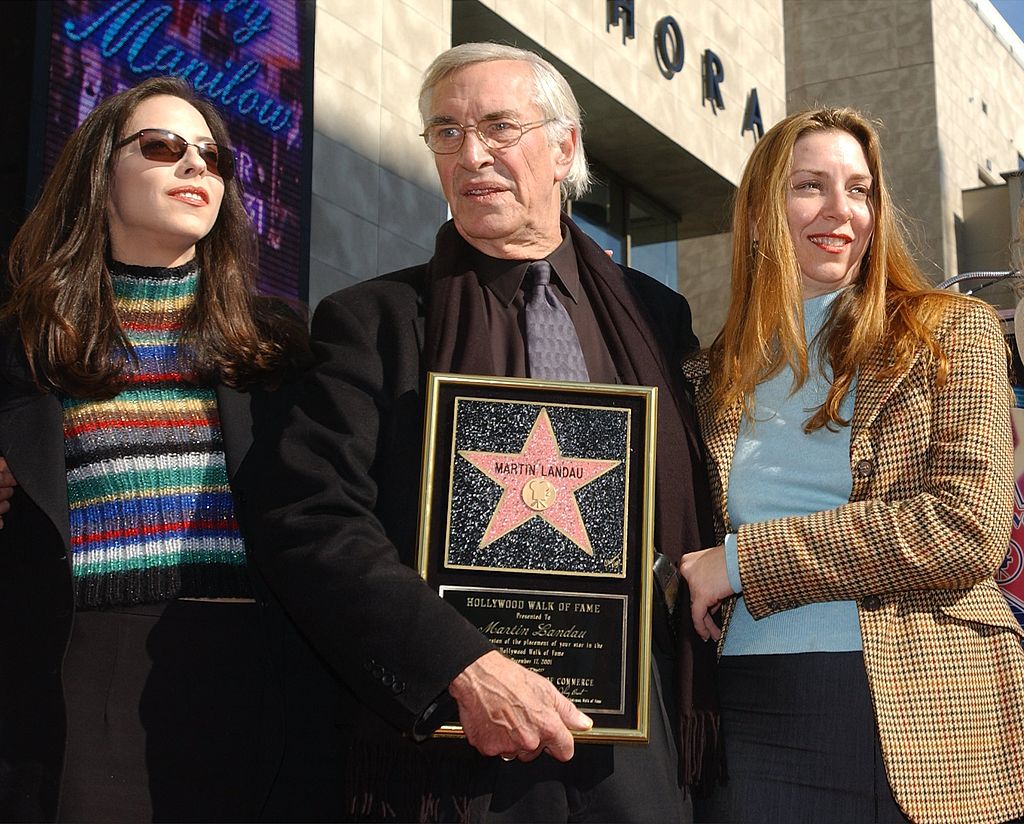Martin Landau: Oscar-winning actor who played both hero and villain
Working with the likes of film directors Hitchcock, Coppola and Woody Allen, his breakthrough role nevertheless came from hit 1960s TV series ‘Mission: Impossible’

Your support helps us to tell the story
From reproductive rights to climate change to Big Tech, The Independent is on the ground when the story is developing. Whether it's investigating the financials of Elon Musk's pro-Trump PAC or producing our latest documentary, 'The A Word', which shines a light on the American women fighting for reproductive rights, we know how important it is to parse out the facts from the messaging.
At such a critical moment in US history, we need reporters on the ground. Your donation allows us to keep sending journalists to speak to both sides of the story.
The Independent is trusted by Americans across the entire political spectrum. And unlike many other quality news outlets, we choose not to lock Americans out of our reporting and analysis with paywalls. We believe quality journalism should be available to everyone, paid for by those who can afford it.
Your support makes all the difference.Oscar-winning character actor Martin Laundau had a dagger-like physique, Cheshire-cat grin and intense gaze which made him ideally suited to play icy villains and enigmatic heroes – most notably, disguise master Rollin Hand in the hit 1960s TV series Mission: Impossible.
Landau's seven-decade career featured verdant artistic peaks – including his work for directors Alfred Hitchcock, Francis Ford Coppola, Woody Allen and Tim Burton – and long stretches of arid desert.
The New Yorker once described him as “a survivor of B-movie hell,” noting his long mid-career run of disaster films, blaxploitation movies and fright flicks. “None of them were porno,” the actor once quipped, “though some were worse.”
A precociously gifted artist, Landau had been a cartoonist, illustrator and theatre caricaturist at the New York Daily News in his teens before embarking on an acting career at 22.
He had developed a strong talent for observing people's expressions and movements, as well as a flair for imitations and accents. Of thousands of applicants, only he and Steve McQueen were accepted in that class at the prestigious Actors Studio in Manhattan.
The school employed the Method philosophy, which calls on a performer to draw from his own, often painful, memories to illuminate a character. The system helped mould a generation of brooding stars, including Marlon Brando and James Dean.
The six-foot-three Landau distinguished himself with a more subtle charisma and command of his craft, emerging as a versatile journeyman TV actor in the 1950s and 1960s.
Hitchcock, an admirer, cast him in his most memorable early role as the closeted gay minion Leonard of espionage ringleader James Mason in North by Northwest (1959).
Landau had proposed making Leonard covertly gay, and worked with screenwriter Ernest Lehman to craft a line about his “woman's intuition” – to be delivered before the character demonstrates how Mason's girlfriend (played by Eva Marie Saint) has betrayed them.
“It was quite a big risk in cinema at the time,” Landau told The Daily Telegraph in 2012. “My logic was simply that he wanted to get rid of Eva Marie Saint with such a vengeance, so it made sense for him to be in love with his boss, Vandamm... Every one of my friends thought I was crazy, but Hitchcock liked it.”

Landau became a full-fledged star in 1966 with Mission: Impossible, the spy drama about an elite squad of government agents who infiltrate and destroy Cold War enemies. The cast included Steven Hill and later Peter Graves as the group's boss, and Barbara Bain (then Landau's wife) as the sultry team member Cinnamon Carter.
Lalo Schifrin's pulse-quickening jazzy score, and the self-destructing instructions that set every episode in motion, helped make the programme a popular success – as well as a target for parody.
Landau and his wife left the show – he quit in a salary dispute, and she was fired in retaliation – three years in, at the peak of their fame. Mission: Impossible ran another four years without them.
Landau said he found himself adrift, reduced to playing heavies in low-budget dreck. A widely acknowledged nadir was the TV film The Harlem Globetrotters on Gilligan's Island (1981).
His career was salvaged by Coppola, who cast Landau as an amiable elderly businessman with a huckster streak in Tucker: The Man and His Dream (1988). The film starred Jeff Bridges in the real-life story of industrialist Preston Tucker, who mounts a star-crossed attempt to challenge the Big Three automakers with a new car.
Landau, almost unrecognisable with ageing makeup and a moustache, played Tucker's partner. He received a supporting Oscar nomination for his touching and understated performance – the start of an acting renaissance in his sixties.
“Oh, Tucker resurrected me,” Landau later told the Guardian. “Before that, I did several films that should be turned into toothpicks. I was being offered, you know, professional bad guys in the evil business, total comic-strip stuff. When I got Tucker I thought, 'Thank God, a human being’.”
A second Oscar nomination followed for Allen's Crimes and Misdemeanours (1989), in which Landau brought a sympathetic twist to a New York ophthalmologist and philanthropist, who is also an embezzler and arranges to have his erratic mistress (Anjelica Huston) killed.
Newsweek arts writer Cathleen McGuigan spoke for many critics when she wrote that his “delicate, tortured performance as a successful man caught in the web of his deceits is a tour de force”.
He received the Academy Award for Burton's Ed Wood (1994), in which he gave an impassioned supporting turn as the Hungarian-born, heroin-addicted, ageing horror-film actor Bela Lugosi.
Critics lauded the tragicomic poignancy Landau brought to the role of a once-big star reduced to appearing in movies directed by the bizarrely inept Wood, often labelled the worst director of all time.

Burton said Landau's interpretation was pivotal to the film, which centres on the friendship between Lugosi and the title character, played by Johnny Depp. “I think he just could relate to it, and had been through enough ups and downs to understand Bela Lugosi,” Burton said.
Although well-reviewed, Ed Wood was not a commercial success. Landau never fully capitalised on his renewed celebrity, and appeared in an uneven parade of films and TV shows.
One highlight was his Emmy Award-nominated recurring role on the HBO comedy series Entourage as a washed-up Hollywood producer. His endearingly clueless character makes dubious and exaggerated movie pitches straight out of a 1950s playbook: “What if I told you [enter claim here]. Is that something you might be interested in?”

Martin Landau was born in Brooklyn on 20 June 1928. His father, a Jewish immigrant from Eastern Europe, was a skilled machinist.
Landau joined the Daily News while still in high school and, after five years, turned down a promotion for fear that he would remain at the paper forever. Seeing bad actors had simply persuaded him that he could do it better. “I told the picture editor I was going into the theatre,” he told the Los Angeles Times. “I think he thought I was going to be an usher.”
At the Actors Studio, he briefly dated Marilyn Monroe (who was taking classes) and married fellow student Bain; the marriage ended in divorce. Landau is survived by two daughters as well as a granddaughter.
In his thirties, Landau landed small roles in movie epics such as Cleopatra (1963) and The Greatest Story Ever Told (1965), while pursuing a prolific TV career. He held the role of John the Baptist in an adaptation of Oscar Wilde's play Salome, and a sadistic western gunman in an episode of The Twilight Zone.
In the mid-1970s, he and Bain also co-starred in the syndicated sci-fi series Space:1999 – which, though stylishly made, proved a flop.
For years, Landau was a director of the Actors Studio's West Coast branch, where Jack Nicholson and Harry Dean Stanton were among his earliest students.
In later life, had a rare leading-man part in Lovely, Still (2008), a tepidly received romance about an older couple's love affair, and co-starred with Christopher Plummer in Atom Egoyan's thriller Remember (2015), about Holocaust survivors who plot to kill an ageing Auschwitz camp commander.
“If I was an opera singer or a ballet dancer, I probably wouldn't be able to do that any longer, but being an actor playing old guys is kind of a gift,” Landau told the Star, a South African publication. “Half of the people I came up with are gone, and the other half don't remember what they had for breakfast, so I'm very lucky.”
Martin Landau, actor, born 20 June 1928, died 15 July 2017
© Washington Post
Subscribe to Independent Premium to bookmark this article
Want to bookmark your favourite articles and stories to read or reference later? Start your Independent Premium subscription today.
Join our commenting forum
Join thought-provoking conversations, follow other Independent readers and see their replies
Comments